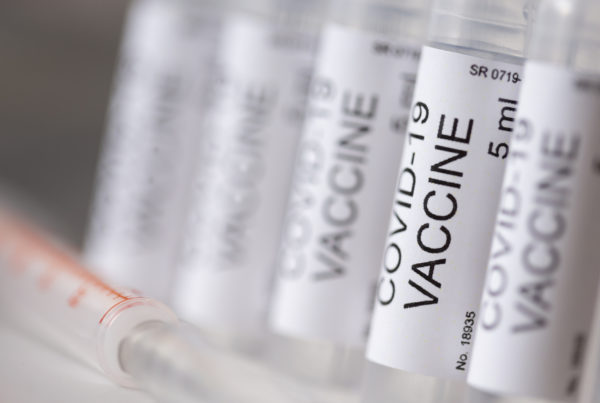
There is so much talk right now about cannabis in Canada. It’s exciting because there is the potential for cannabis to become a helpful treatment for a wide array of medical problems that currently are very difficult to treat. But this excitement must be tempered by an honest discussion about the benefits and risks of cannabis, which we really don’t have a complete handle on, owing to a lack of high-quality research.
The Government of Canada’s Access to Cannabis for Medical Purposes Regulations (ACMPR) establish the legal framework that enables patients to obtain authorization to possess cannabis for medical reasons. However, many people are not aware of what health conditions cannabis could be helpful for. Let’s take a look at what some of those medical indications may be.
What are the established medical uses for cannabis?
Clinical Practice Guidelines published in Canadian Family Physician in February 2018, which were based on an exhaustive review of the best systematic studies on the use of cannabis for the issues of pain, nausea and vomiting, and spasticity, concluded that there are currently only four specific indications for the use of medical cannabis:
• neuropathic pain
• palliative cancer pain
• refractory chemotherapy-induced nausea and vomiting
• refractory spasticity in multiple sclerosis or spinal cord injury patients
So, this means that if we are following the strictest application of evidence-based medicine, then these are currently the only appropriate indications.
The authors also point out that even for these issues, cannabis should not be used as first-line therapy, but rather when other more conventional treatments have been tried and were deemed ineffective. To clarify further, there is no strong evidence currently that cannabis is helpful with things like back pain, pain from arthritis, general nausea and vomiting issues, or general spasticity. It is only for pain, nausea/vomiting, and spasticity in the specific situations described above.
The authors of these guidelines also point out that there are other studies out there that look at the clinical effectiveness of cannabis for many indications other than pain, nausea and vomiting, and spasticity, but that in their opinion these studies are not even worthy of analysis because they are too biased and lack high-level research. The message is that we should not even prescribe it at all for any of these reasons.
What are some of these indications?
Many experienced cannabis physicians in Canada are currently treating a wide variety of issues such as headaches and migraines, insomnia, epilepsy, fibromyalgia, ADHD, glaucoma, anxiety, depression, PTSD, Crohn’s disease, irritable bowel syndrome—and the list goes on and on. Is this appropriate? Well, if we are asking if there are high-quality studies that show that cannabis is safe and effective for these conditions then the answer is no. However, as I have written elsewhere, there are many good reasons to treat medical problems in the absence of compelling evidence and it may be okay to do so if you are dealing with a highly ethical doctor who has no conflict of interest and who honestly explains to you in detail the risks and benefits, as best as they can be known at this point.
In Canada, patients also have the option to visit specialized clinics to obtain an assessment and a prescription for medical Cannabis. Many of these clinics provide education and support on how to choose and use medical marijuana appropriately. Some even offer services via remote video appointment across the country.
How to access medical cannabis clinics in Canada
These clinics are privately owned and can be found in all provinces. To find one, you can ask your health care provider to direct you to cannabis clinics that they know and trust. Alternatively, you can do an internet search to get a list of cannabis clinics in your area. In either case, patients should feel free to ask questions about the clinic’s functioning, fees, and the services they provide, as these may vary widely between clinics. For example, some clinics require a doctor’s referral, whereas others take self-referrals.
When choosing a clinic, make sure that they deal only with licensed producers approved by Health Canada. Also ensure that you will not be restricted to a limited number of producers. Reputable clinics should have physicians that perform assessments of all applicants, have assessments covered by provincial plans, and propose services by licensed health care professionals only. As sensible consumers, patients are invited to adopt a proactive approach and shop around to compare fees and services.
It is important to note that medical cannabis clinics are not allowed to sell cannabis directly to patients. Instead, they may put the consumer in contact with a licensed producer that will meet their needs, depending on the condition being treated.
The future of medical cannabis
Cannabis, like any other prescribed medication, is not a cure-all. When any new drug or treatment comes on the scene, there is often a period where the excitement about its usefulness gets overstated and the risks get glossed over. Anyone who questions it or who presents a cautious approach about this new treatment can get branded as a closed-minded naysayer who wants to spoil things. We should be cautious about this kind of thing with cannabis. Only when a new treatment gets used widely in the general population can we truly know and appreciate its effectiveness and its risks. No treatment is a panacea; there are always risks and pitfalls that take a while to play out before we fully understand them. My advice is to deal with an experienced cannabis clinician who addresses the uncertainties surrounding its use honestly and presents a balanced and reasoned approach.
Over the next 7 to 10 years, it will be interesting to see how helpful cannabis proves to be. Certainly, we will see an increase in the number of high-quality studies that will shed more light on its effectiveness and its risks. I am hopeful that we will continue to learn more and that ultimately, we can help the many people with intractable symptoms who need effective, safe treatments.
For more valuable health information, visit our Ask the Expert section.



